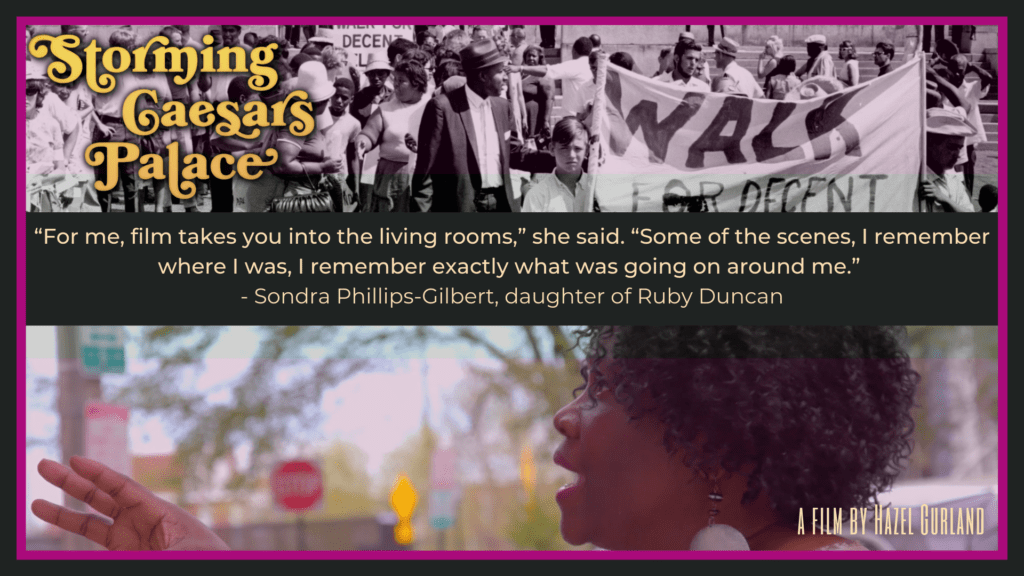We know government assistance works to help families make ends meet. We saw this clearly with the American Rescue Plan and its expanded Child Tax Credit (CTC), the single largest contributor to a historic reduction in child poverty, keeping millions of children out of poverty.
Progress made to reduce child poverty during the pandemic is taking several steps back now as the CTC was left to expire last December and free meals for all public school students also was discontinued this summer. Without these simple measures to help keep children cared for, we will continue to see the United States fall behind other high-income nations when it comes to building a healthy and thriving populace.
Unfortunately, this is not the first time American families were told by their elected officials that they were not worth the investment. Approximately 50 years ago, we had the chance to pass a plan for a universal, publicly funded national child care system and at the last minute President Richard Nixon vetoed it, deciding it would lead to “family weakening.”
This is also when Nevada cut 75 percent of aid to welfare mothers. And this is what brought Ms. Ruby Duncan, a mother in Las Vegas, into the fight against poverty.
When welfare was on the chopping block, Duncan led a persistent charge against leaders who told her she was too uneducated and too poor to make a difference.

Duncan was part of the Great Migration out of the South, leaving her family of sharecroppers for the promise of an oasis of opportunity in Las Vegas, Nevada. The racism and poverty of the South wasn’t much different in Las Vegas, and after being injured at her job as a cook at the Sahara Hotel, she reluctantly used welfare to support her family. She had six children to raise on her own, and she always had to get up when she was knocked down. Her leadership — organizing meetings, marches and ‘eat ins’ that earned national attention — created important changes in Las Vegas, bringing medical, housing, education and economic services to her community. Duncan is one of the most impactful civil rights leaders we don’t know enough about.
Her life and leadership is highlighted in a new documentary Storming Caesars Palace, directed and produced by Hazel Gurland-Pooler. Now the film is about to premiere at BlackStar Film Festival in Philadelphia on Wednesday, August 3.
Gurland-Pooler knows the film is educational and can mobilize people to organize and lobby for what their families need – but she also knows it’s more than just a history lesson, and hopes it invites people into the growing movement.
“It’s also, at heart, entertaining. There’s great music, there’s beautiful archival material – really seeing Ruby and the other moms out there. There’s even some pictures of Sondra as she was in the march at 12-years-old,” she said.
Sondra Phillips-Gilbert is Ruby Duncan’s daughter, who now works for the Department of Human Services in Washington, D.C.
“For me, film takes you into the living rooms,” she said. “Some of the scenes, I remember where I was, I remember exactly what was going on around me.”

She went on to share that the film can help other people learn in a special way, by seeing the history that is brought to life. Duncan’s powerful voice and smart organizing was able to effectively bring her community together and disrupt power by showing leaders the real power of the people. Her daughter said just watching the final film makes her so proud of her mother all over again.
“She was away so often, fighting for families around the country, that we knew the importance of that. And just to see her in the film, it makes me so proud of her and how far we’ve come and how it has impacted my life,” Phillips-Gilbert said.
She took what she learned from her mother to her days at Howard University, where she joined groups, stayed involved in protests, and connected to what people needed. She is also an elected official, representing her community in Ward 6 and has won at least 16 million dollars for her community, including a recreation center, library and urban farm.
“It’s so important that we have people that can stand up and fight for those who can’t. And not only organize, but also learn how to take it to the legislature, to the government heads to make a difference,” said Phillips-Gilbert. “People can do it if they have faith and believe in themselves and they stick to a plan – and that’s what we did.”
Not only does this film celebrate the living history of Black mothers demanding what they needed for their families for the benefit of all communities, but it’s the first film being told from the perspective of women on welfare. Making sure the film was led by Duncan and the women who were marching alongside her was critical to Gurland-Pooler’s vision.
“I’m hopeful that this will be helpful and inspiring for all the folks out there thinking, ‘nobody cares about my story’ or ‘there won’t be a film about my story,’ but there can be and will be,” said Gurland-Pooler.
The film will be at festivals and broadcast nationally on PBS this year, showing visionary low-income women leading the charge. Gurland-Pooler is proud and excited that this film is reaching such a large platform and getting out into the world.
“In order for us to be able to fight for our democracy and keep our rights that we need, we have to be participating. And I think that hearing Ruby Duncan’s story really shows us how everybody can do that,” said Gurland-Pooler. “I think it’s important that the film get out there and inspire and mobilize folks today to keep that fight going, because it’s needed now more than ever.”
